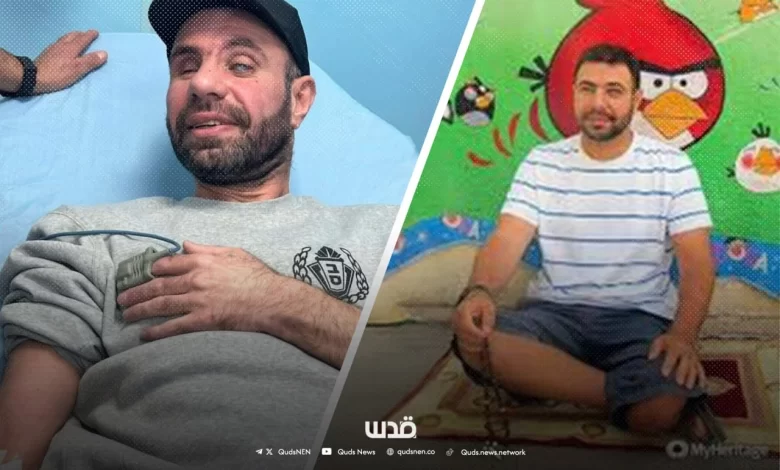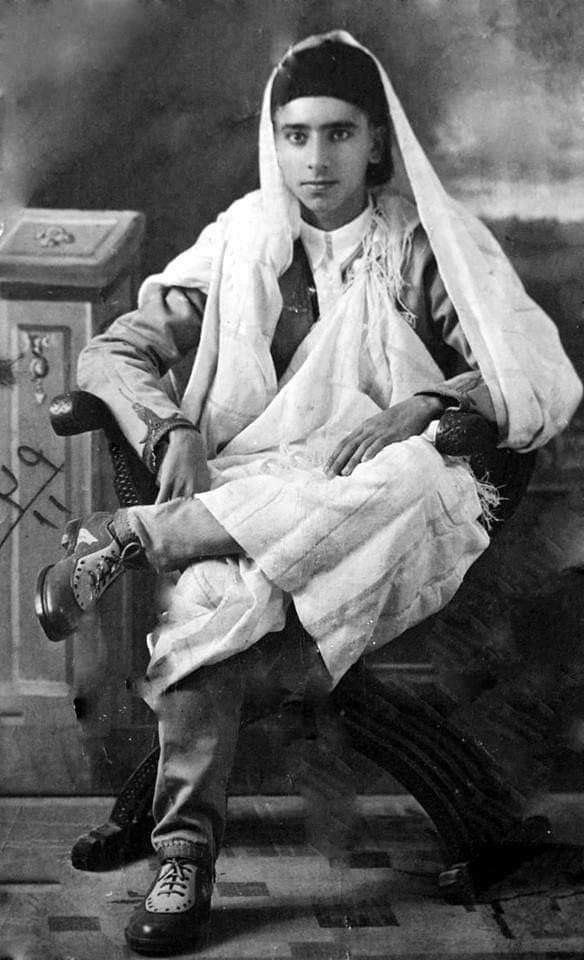
Muhammad Barrash spent 22 years in an Israeli prison, enduring blindness, pain, and medical neglect. On Saturday, he finally walked free.
Barrash’s story is one of unimaginable suffering. In 2002, an Israeli “Energa” shell struck him in the heart of Ramallah in the West Bank. The explosion took his left leg, damaged his right, and left him partially blind. In June 2003, Israeli forces captured him. He was sentenced to three life terms and an additional 40 years.
Prison only deepened his suffering. Within a year of his detention, Barrash lost his eyesight completely. His right eye, already injured, deteriorated due to untreated medical conditions. But he kept this secret from his mother.
“Don’t tell my mother I am blind,” he wrote in a letter from prison in 2012. “She sees me, but I cannot see her. I smile and pretend when she holds up pictures of my brothers and friends. She doesn’t know that darkness has taken over my body.”
For years, Israeli prison authorities denied him medical care. He waited endlessly for a corneal transplant. The procedure never came. His body bore the scars of war—shrapnel embedded in his flesh, his right leg deteriorating. In 2021, he discovered that Israeli prison authorities had been giving him expired cholesterol medication, worsening his condition.
Meanwhile, his mother waited. She fought to visit him. She dreamed of his freedom. And on Saturday, her prayers were answered. Barrash stepped out of prison, no longer behind bars but forever marked by the years of neglect and torment.
His release is part of the first phase of a prisoner exchange deal between the resistance and the occupation state. For many, his story symbolizes the brutal conditions faced by Palestinian detainees in Israeli prisons.
Despite the blindness, the wounds, and the suffering, Barrash survived. He is free. But the scars remain.
Unprecedented Torture
The harrowing experiences of Palestinian prisoners in Israeli detention centers have long been a subject of international concern. Recent reports highlight a disturbing escalation in the severity of torture and mistreatment.
According to the Palestinian Prisoner’s Society (PPS), detainees released as part of the recent prisoner exchange exhibited signs of “unprecedented” torture and starvation. Freed prisoners were observed wearing stained grey prison jumpsuits, bearing physical evidence of prolonged abuse. Testimonies revealed that many endured severe beatings leading to broken ribs, systematic medical neglect, and deliberate starvation. Some suffered from untreated skin conditions like scabies, exacerbated by the harsh prison environment.
Further reports from the Arab Workers Union indicate that Palestinian workers arrested following the October 2023 Israeli genocide in Gaza faced brutal treatment. Legal advisor Wehbe Badarneh disclosed that 34 workers died under mysterious circumstances or from alleged heart attacks while in detention. Testimonies from survivors detailed horrific abuse, including beatings, stripping, and various torture methods. These accounts suggest that some workers were tortured to death, prompting calls for international legal action against Israel.
Amnesty International has also documented a sharp increase in the use of administrative detention by Israeli authorities, leading to arbitrary arrests of Palestinians across the occupied West Bank. The organization reported that detainees suffered from inhuman and degrading treatment, with incidents of torture and deaths in custody going uninvestigated. This pattern of abuse underscores a systemic issue within the Israeli detention system according to the Quds News Network.







